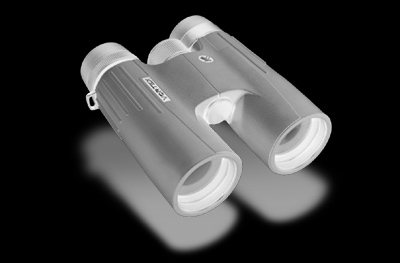
Binocular buyers and authorized optics dealers around the United States are being scammed by eBay thieves. I alluded to this on my blog several weeks ago, but thanks to The Binocular Thief Blog appearing on a BirdForum.net thread, I now have a clearer understanding of the scam. Various law enforcement agencies are aware, but catching the crooks and getting places like eBay and PayPal to cooperate is difficult due to strict privacy policies. Though protecting their users and communities is certainly one of their top priorities, these groups are inadvertently making it possible for thieves to thrive by giving them adequate cover for their fraudulent operations.
Even the FBI has a high fraud threshold before they'll launch a full investigation. This is partly due to the fact that credit card fraud is an annual multi-billion dollar problem in the United States and they only have so much time and resources to dedicate to investigations primarily involving super large amounts, like several hundred thousand dollars or more. So, a few thousand here and there is simply too tiny a blip on their radar to take much notice. As a result, these bottom feeders may eventually cross that threshold, but for now they're getting away with it.
What can you do as potential binocular buyers? Avoid purchasing from eBay or any website offering brand new high-end binoculars at suspiciously low prices. There are no deals out there, my friends. All authorized dealers are selling at (or around) the same price. Buy from eBay and there is virtually no way to guarantee that an auctioned binocular isn't ultimately going to end up as stolen merchandise in your hands.
These crooked sellers don't actually have the product in inventory or a warehouse, they merely use authorized optics dealers as drop-ship stores, but pay for product using stolen credit cards with changed identities once an auction is won. Yes, they actually change the identity on the stolen card to match the eBay buyer by taking advantage of super convenient "change of address" on-line forms or voice automated systems offered by many banks and financial institutions - they can do it all behind the scenes. The eBay buyer receives what he or she ordered, but at the expense of a legitimate merchant and a third-party credit card holder who has no idea why their card shows a $1,500.00 charge from an optics dealer. That's the scam.
The growing convenience of Internet commerce over the past decade has certainly been a factor into the how thieves are finding new and clever ways to steal money. Who pays? In the short term the merchants do, but in the long term everybody does. This absorbing effect might make credit card fraud seem like a victimless crime, but I wonder whether or not this contributes to a decline in the overall health of our economy. Merchants may take the initial hit, but ultimately may pass their losses on in the form of higher prices. Who keeps the thieves in business? People who believe in the myth of the "Super Deal."

















